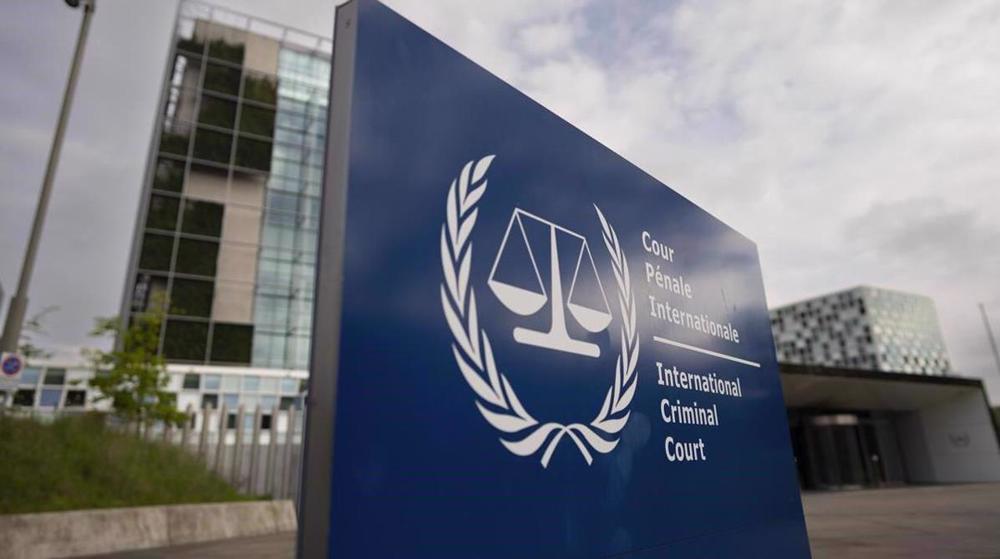France urging EU partners to consider firm response to Israel's West Bank annexation: Diplomats
France has been pushing its European Union (EU) partners to consider threatening the Israeli regime with a firm response if Tel Aviv proceeds with a plot to annex parts of the occupied West Bank, diplomatic sources say.
Three EU diplomats told Reuters on Monday that France wants to raise the issue during a meeting of the bloc’s foreign ministers on Friday.
Belgium, Ireland and Luxembourg also seek to introduce some sort of punitive economic measures against Israel on the event’s agenda, they said.
The diplomats did not specify what punitive measures could be on the table to deter Israel from stealing more Palestinian land.
The report came after Israeli Prime Minister Benjamin Netanyahu said cabinet discussions would start in July over extending Israeli “sovereignty” to the settlements built on occupied land and to the Jordan Valley in the West Bank, as was mooted under US President Donald Trump’s Middle East scheme.
Palestinians have expressed outrage at Israel’s plans to cement its hold on land it seized during the 1967 war -- part of the territory they are demanding for a future state of Palestine.
“There is clearly a need to look at what annexation means in the context of international law and we do need to know our options,” said one senior EU diplomat involved in discussions.
“We also need to say what exactly the consequences of annexation would be, ideally as a way to stop any such move,” the diplomat added.
EU foreign policy spokesperson Peter Stano said on Monday that the 27-member bloc would take action if Israel moved ahead with its illegal annexation of the West Bank.
“Annexation is not in line with international law. If it goes ahead, the EU will act accordingly,” he told the European Commission’s daily press briefing.
In terms of procedure, EU governments would need to ask the EU’s External Action Service (EEAS) to draw up a list of options. All 27 EU nations would need to agree to any response, but Israel’s closest allies such as Hungary and the Czech Republic could still block even preparatory work, according to Reuters.
EU foreign policy chief Josep Borrell has said the bloc does not recognize Israeli rule over Palestinian land, and that it will “continue to closely monitor the situation and its broader implications, and will act accordingly.”
Separately, the UK also said it would not support Israel’s annexation scheme, with Britain’s minister of state for the Middle East and North Africa telling the parliament that “our long-standing position is that we do not support the annexation of parts of the West Bank, and... doing so could make a sustainable two-state solution harder.”
Meanwhile, Secretary-General of the Palestine Liberation Organization (PLO)’s Executive Committee Saeb Erekat said Ireland and Greece were also opposed to Israel’s new land grab bid.
Erekat tweeted Monday that he had held in-depth talks with Ireland’s Foreign Minister Simon Coveny as well as with Greek Foreign Minister Nikolaos Dendias.
During the talks, he said, the European diplomats called for an end to the Israeli occupation of Palestinian territories and the implementation of a so-called two-state solution based on the pre-1967 borders in line with international law.
Palestinian resistance fighters hit Israeli Merkava 4 tanks
VIDEO | UK police brutal assault on Muslim family sparks outrage, protests
Hamas: Death of leader in Israeli jail amounts to murder
EU sends €1.5 billion to Ukraine from frozen Russian assets
VIDEO | Millions of Yemenis rally for Gaza, call for more anti-Israel operations
UN chief calls for Olympic truce as games begin in Paris
Paris Olympics begin as sports world reeling from loss of 400 Palestinian athletes in Gaza war
Iran warns ‘sworn enemies’, says sidekicks of US, Israel ‘displaced’ with bloody hands












 This makes it easy to access the Press TV website
This makes it easy to access the Press TV website